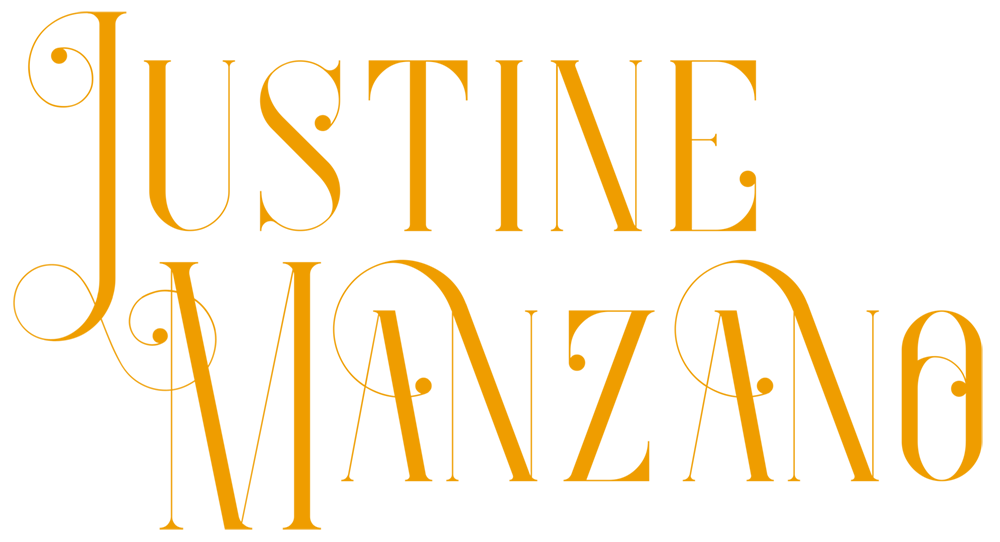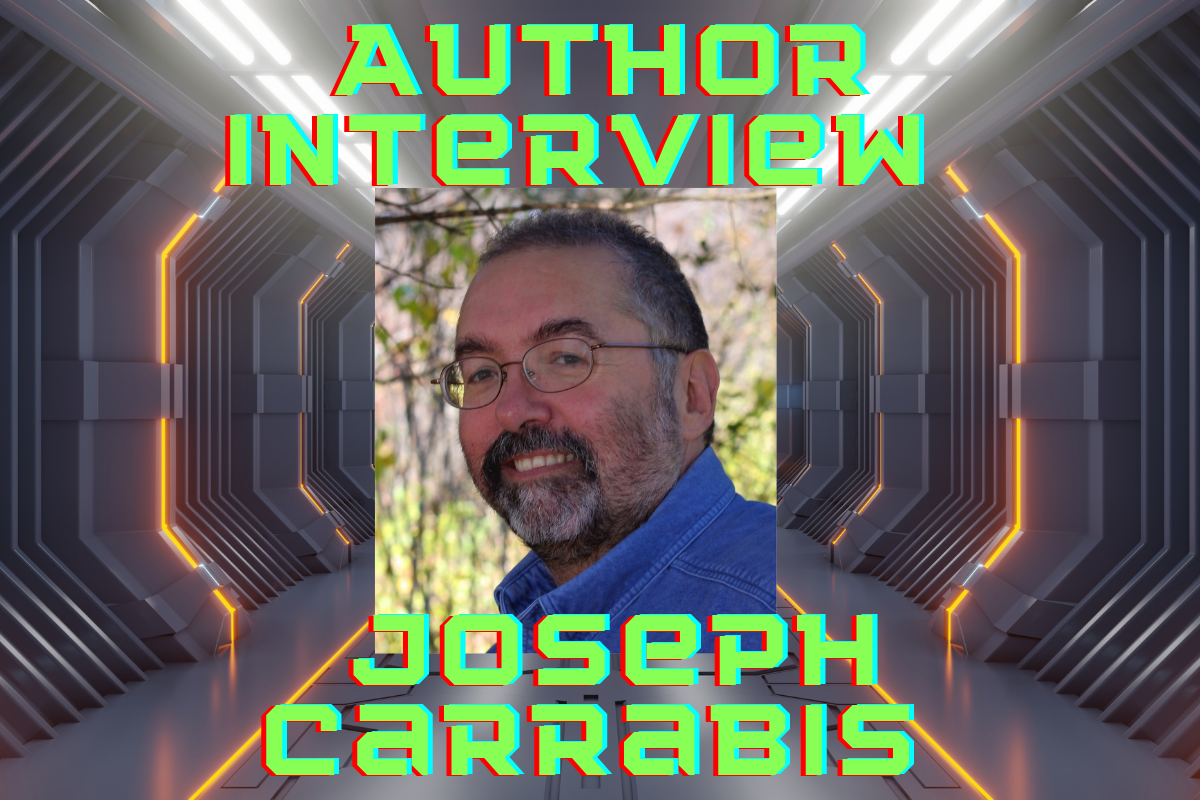I met Joseph Carrabis through his former publisher. He’s a fun guy with a wonderful imagination, and a very interesting past in marketing. Today, we’re going to talk all about that, and he’s going to introduce you to his work.
Justine: First of all, tell me about your book, The Augmented Man. It truly sounds like a cool ride.
Joseph: Thankee. The Augmented Man is written as a military sci-fi thriller on the surface. But to be honest, I suspect Tom Clancy readers might not like it. Typical to my work, it doesn’t fit neatly into a box. It’s really about recovering from trauma, specifically massive childhood and combat trauma. I link the two in the novel due to my psychotherapeutic work in trauma recovery in the early 1990s (I wrote the original version in April 1990).
A nutshell synopsis; The US is involved in a Viet Nam like war, this one in the South American coca fields. The war is unpopular largely due to the number of returning vets suffering PTSD and on drugs. The US wants to end the war with a decisive victory but doesn’t know how to go about it (there’s a fair amount of politicking going on). Captain Donaldson comes up with a solution: Let’s get soldiers who are already so horribly traumatized nothing they experience or do in combat will affect them.
Great idea, Captain. Where do we get them?
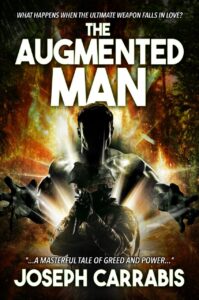
Get children who’ve already been emotionally, physically, spiritually, and psychologically traumatized. Any who’ve survived have already developed the hardening necessary to ignore what they do and is done to them. All we need do is augment what they’ve already done to themselves, continue the hardening of their minds, emotions, and spirit, biologically and physically change them so their bodies match what’s inside, and give them mental conditioning to match.
Thus The Augmented Men are created.
At the end of hostilities, it is decided they can’t return home. They’re monsters in all ways, so they are betrayed and sacrificed to the enemy.
Except one who escapes, survives, and comes home.
Justine: That sounds like a real deep dive into the horrors of war. I also have trouble fitting my books clearly into boxes. What is your process as a writer? How do you cultivate an idea?
Joseph: My process? I sit and write. A lot. Is there another way and nobody told me?
Cultivating an idea…I have no idea what it would be like not to have story ideas flooding me all the time. I keep notebooks everywhere, record ideas into my phone for later transcription… Sometimes I’ll have the kernel of a story and it’ll germinate for years. Suddenly – and I have no idea what the spark is – Boom! There’s the full story. My current work-in-progress is something I started in the late 1970s. I wrote about a third of the novel, stopped, and it lay dormant for quite a while. I picked it up in the 80s, again in the 90s, and again in the early 00’s. I always knew there was a story there (it’s based on a true story of a triple murder in Maine some fifty years ago) and it never came together.
During the writing of my last novel (completed and waiting for rewrite/editing), an early reader said I had to start this novel again (same protagonist in both novels). Writing that last novel loosened things up enough for me to get a handle on what this novel’s story truly was: The triple murder was the “surface” event, not the main story. It was what caused the main story to happen.
Once I realized that, I’m off and at it with twenty-four chapters and 60k words so far.
So idea cultivation is what it is. Some stories appear in their entirety (including novels), others need to gestate.
Justine: I love that Boom moment. Sometimes you have to let things marinate until the story finds its way to you. Any weird writing time rituals for a good session?
Joseph: Define “weird.” I usually have music on and it’s eclectic. As I type this, I’m listening to The Rippingtons. Yesterday it was Bach. Tomorrow it might be The Mommas and the Poppas.
Justine: Technology helps with that a lot. I’ve loaded all of my writing into my iPhone and I hit shuffle and away it goes. I can skip through worlds of music that way, and I, too, have eclectic tastes. Another thing tech can help us with–publishing! You’ve published across a few forms of publishing, including self-publishing. Tell us about your experience with these changes and the advantages of each, as you see it.
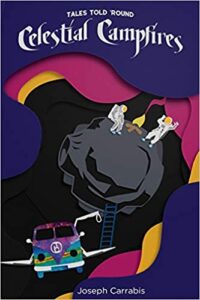
Joseph: Interesting question at this point in my career. I started writing full time in 2016 and had a four part plan for my career.
First, see if there’s an audience for my work. I self-published an anthology of previously (print) published short stories and novelettes entitled Tales Told ‘Round Celestial Campfires. The few people who read it liked it immensely. Next I self-published Empty Sky, another novel originally written in the early 1990s. Again and according to reviews, such an audience existed.
Phase two of my plan was to get a small publisher interested in my work. My previous experiences with the publishing industry came from writing several successful trade-technical books in the 1980s-90s. I wasn’t prepared for the diversity currently in the publishing industry. I sent out The Augmented Man and had three takers. The first, a Canadian outfit, was a joke. I asked for a meeting with their principal and during a zoom meeting he threatened me if I didn’t give him the book.
Okay, bye.
Justine: Wow! That’s wild!
Joseph: The second house, Oghma Creative, is a good house and I respect them, but they weren’t a good fit for The Augmented Man. The third house provided quite a few lessons in the modern world of publishing; they weren’t really in the business of selling books, they were in the business of selling marketing schemes to authors. I kept asking to see some results of their schemes. Note; I didn’t care if the ROI (Return-On-Investment) was negative, I wanted to know what to expect. I ran an international business for 25 or so years and can accept negative ROI if the long term plan warrants it. But they’d have none of it and came up with excuse after excuse after excuse for not showing me any real data. Other authors with the same house shared their data and it was impressively negative (one author spent over 9k$US and only sold 200 books!).
That noted, they did provide an amazing number of negative examples for my learning, including dropping The Augmented Man without warning and three months before Christmas. I already had a marketing push in place and had to stop everything. Between my experience with this so-called publisher and learning other authors’ experiences with them, it was time to take the learnings and move forward. You can read about some of this publisher’s schemes and a marketing take on them and marketing in general linked here.
The Augmented Man is now with Sixth Element and doing well. Unlike the publisher mentioned above, Sixth Element answers all my questions quickly and provides reasons, numbers, and sound marketing logic for their decisions. That, to me, is a good publisher.
I’m now in Phase Three of my plan; I recently received a contract for a rewritten Empty Sky and it includes an advance. This is a medium size house with strong marketing and networks already in place. We had a 1+hr Zoom call about the book and their ideas for it. Nice.
Phase Four would be getting into one of the Big4/5. However, I’ve had conversations with authors across the publishing spectrum during my journey to date and I’m no longer convinced one of the Big 4/5 would work for me.
But one never knows. We’ll see.
Justine: That is quite a storied history. I’m glad you found your way out of a bad situation, even if it didn’t go as smoothly as you would have wanted. It sounds like you’re happy in your new place. Moving on, on your blog you call your work “Autobiography in the guise of poetry, fiction, fantasy, sci-fi, magical realism, and other associated dark arts.” That’s an interesting supposition. What about your work is autobiographical?
Joseph: Everything about my work is autobiographical. I can’t imagine not writing from personal experience. I’ve said elsewhere I pity people who see snow falling and only see snow falling, see waves on the ocean and only see waves on the ocean. My life is rich with metaphor. Everyone’s is. The trick is to accept it.
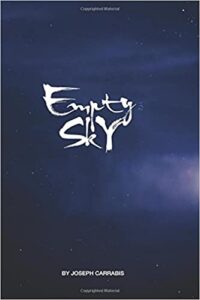
Justine: I love that. I also love your Amazon profile. It’s got loads of information. For instance, it says you’ve befriended a variety of wilderness creatures. How did that become a thing?
Joseph: Susan (wife/partner/Princess) and I have always enjoyed the company of animals. I worked on farms when I was younger, took part in wildlife studies, things like that. Currently, our home abuts several acres of woods. Many years ago I noticed a raccoon coming during the day and getting seeds fallen from our bird feeders (we have several). I talked to her (a female, Rockalina) from our back porch and over the course of several days got to the point where she’d stay out when I came outside. I started bringing her different foods; cookies, crackers, et cetera, and saw what she liked and didn’t. It got to the point she’d come out and sit under the feeders, waiting for me to come to her.
Eventually she brought her kits to us. Skunk saw the raccoons getting all this and they joined in. Opossums came next, followed by red and gray fox, deer, coyote, hawk, owl, and bear. All are welcome. I blog about them regularly at https://josephcarrabis.com/category/wildlife/
Justine: You’re like a male Snow White. You should try to get them to clean your house for you! So, that same profile says you’re a great pizza maker! What are your go-to toppings? Does pineapple belong on pizza?
Joseph: Pineapple on pizza is a crime against god and nature. But that’s my opinion and doesn’t count for much.
Justine: I hate it so much that the main character in my next release, Never Say Never, says, “Of course pineapple on pizza is not a problem…as long as you don’t mind being a degenerate cretin who ruins everything.” Not to alienate anyone who disagrees. Sorry–back to you! Go-to toppings!
Joseph: Susan loves my northern white (pizza as such doesn’t come from Italy). The closest thing I could find is a zeppole (similar to a calzone. Actually more similar to a Chinese bao). My pizza are variations of the seven basic styles of zeppole. I like mine arrabiata/diavolo. A personal favorite that always amazes people is a Sicilian style as they’ve never had a pizza truly like a pie (almost calzonish).
Justine: How do you take your coffee? (I am a strange interviewer, I know, but these are the fun questions!)
Joseph: I was apprenticed to a coffee buyer in my early years so I’m finicky about my coffee. My mentor knew more about coffee and its properties than you’d think possible. To him, coffee was a natural medication. He’d blend coffees to put one to sleep, to keep one awake, to relieve aches and soreness, even to relieve menstrual cramps.
I’ve advised coffee houses, helped start coffee houses, roasted coffees, created custom blends for special occasions (weddings and such. I understand there’s a coffee shop in Indianapolis that still sells “JD’s (my middle name is David) Special Blend” thirty years after the fact). Some coffees I’ll take black, others require a dot of cream. Sometimes I’ll have an espresso with Sambuca in memory of my grandfather. Or just for the taste.
A lot depends on the coffee and its purpose. A properly made ristretto with a touch of lemon rind is outstanding and few people have it that way. And a good Turkish coffee? Hold me back!
Justine: Ha! Most people just give me their favorite Dunkin or Starbucks selection, but you really know your stuff! Just like you do in marketing. It was your full time job once. What tips can you give to up and coming authors trying to market their books?
Joseph: Tips for up and coming authors marketing their books? My first, honest response is “Don’t do it.” I know several authors who self-market and they openly admit they spend six or more hours a day marketing. To me, that means you’re spending six or more hours a day not writing. Have you ever heard “Thou shalt not yoke the ox and the ass together” or “No man can serve two masters?” To me, people who author and market are doing that and one or both will suffer. To that point, I self-published Tales Told ‘Round Celestial Campfires and Empty Sky but marketed neither. One small publisher has come forward wanting to pick up Tales and another publisher’s offered an advance for Empty Sky (as mentioned previously).
In both cases, the publishing houses’ interest is due to the level of the writing. When a previous publisher dropped The Augmented Man, Sixth Element came forward in less than a week wanting to pick it up and based on one of their people reading it and giving it a great review.
So my suggestion is to develop your craft if you want to be an author, and again, my definition of author probably varies from others. FWIW, I talked with several agents who shared most marketing suggestions given to indie-authors are irrelevant when dealing with serious publishers, be they small, mid, or big. You can find that here.
AJ Budrys, a mentor and friend, once told me anybody who puts words to paper is a writer, an author is someone who gets paid for doing so. Readers want a good story well told. Work at that, publishers will find you and pay you good money for your work, handle all the marketing, distribution, promotion, internal and external design, cover art, blurbs, et cetera, all of which allows you to develop your craft and continue ascending the ladder.
Justine: Okay, as a parting shot, let’s hear about the last good book you read.
Joseph: James Blish’s Mission to the Heart Stars, a golden age sci-fi classic. You can watch a vcast of editor and author Robin Baskerville, sci-fi reader YiFeng You, and myself discussing this amazing novella at https://josephcarrabis.com/2021/04/15/classic-science-fiction-podcast-april-2021-james-blishs-mission-to-the-heart-stars/.
Justine: I’m putting it on my TBR list. Thank you so much for joining us, Joseph!

When asked for a bio, this is what I got:
A bio: I’m boring and dull. Hopefully my stories aren’t. A more serious bio: I’m seriously boring and dull.
This and the above should tell you who Joseph Carrabis is.
